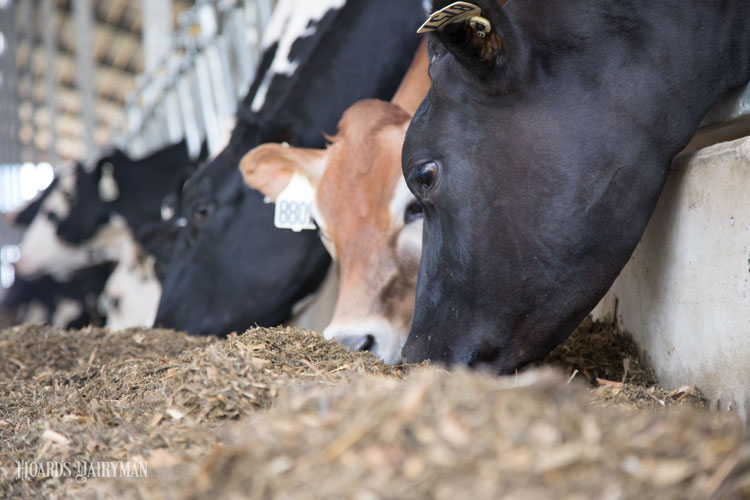
Conventional thought for many years was that feeding supplemental fat and fresh cows don’t mix. Early studies showed supplemental fats often reduced feed intake in fresh cows. Today, there is much more interest in finding the right types and amounts of fatty acids that can be fed to fresh cows to optimize energy intake and nutrient partitioning between milk production and body weight.
In a recent presentation at the Cornell Nutrition Conference, Michigan State University’s Adam Lock explained that they’ve seen the best results with supplemental blends of various fatty acids.
“We need to think of it in terms of fatty acids instead of fat nutrition. I think high inclusion rates and the types of fat fed previously were why dogmas were set to not feed supplemental fat in the fresh period,” he shared. “I think it’s safe to say we can add it, depending on type and inclusion rates.”
Lock’s research shows that increasing palmitic acid (16:0) in diets raises total track neutral detergent fiber digestibility. That’s something that was a huge barrier in early fat trials. It also increased milkfat yield and energy-corrected milk yield in both fresh and postfresh feeding periods.
Oleic acid (cis-9 C18:1) included in the diet has been shown to improve body weight gains or temper body weight losses.
Lock’s team has recently looked into the effectiveness of a blend of palmitic and oleic acids during the fresh period. They tested three blend levels of palmitic and oleic fatty acids, palmitic at 80 percent and oleic at 10 percent, palmitic at 70 percent and oleic at 20 percent, and palmitic at 60 percent and oleic at 30 percent.
All three fatty acid blends improved energy-corrected milk compared to a nonsupplemented diet. All three showed approximately 9.5 pounds more energy-corrected milk than the control diet. However, as oleic acid inclusion went up, cows had higher dry matter intakes and a smaller drop in body weight loss.
“If I was doing this in fresh cows myself, I’d be looking for high palmitic or high palmitic/oleic acid blends,” Lock concluded.








